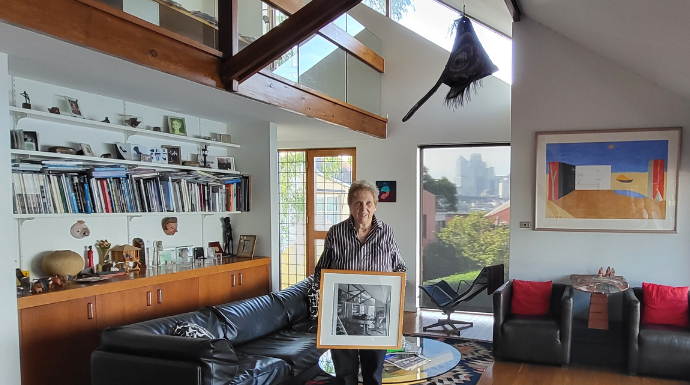
Louise Cox is an internationally renowned architect, the first female President of the Royal Australian Institute of Architects and the second female President of the International Union of Architects (UIA). Co-President of the UNESCO-UIA Validation Council for Architectural Education, a member of the UIA Education Commission also UNESCO’s Historic Urban Landscape working group from 2005 to 2011. Louise also represented the UIA on the UN-HABITAT World Urban Campaign steering committee and chaired the UN-HABITAT Professionals Forum from 2010 to 2014. In 2011 Louise was presented with the insignia of Knight in the Order of Arts and Letters by Frédéric Mitterrand, French Minister for Culture and Communication. Louise was awarded the Australian Institute of Architects National President’s Prize in 2013. In 2014 Louise was made an Officer of the Order of Australia (AO).
Here, she speaks with Dr Bronwyn Hanna in the beautiful and award-winning modernist home Louise built in McMahons Point.
The interview was recorded in 2024 with assistance by Lynny Groshinski for the National Trust of Australia (NSW).
Listen now:
Louise Cox Part 1
Louise Cox Part 2
Louise Cox Part 3
Louise Cox Part 4
Learn more
The National Trust (NSW) oral history project aims to capture the stories of Australians who are involved in the politics of heritage conservation, are a significant custodian of a site, knowledge or event, or have a long history with the National Trust.
Each of these oral histories delve into a person’s life story, and are recorded as a long-form interview with few set questions. Explore other recordings in the series.
If you would like to use these recordings, please contact the National Trust archives.
